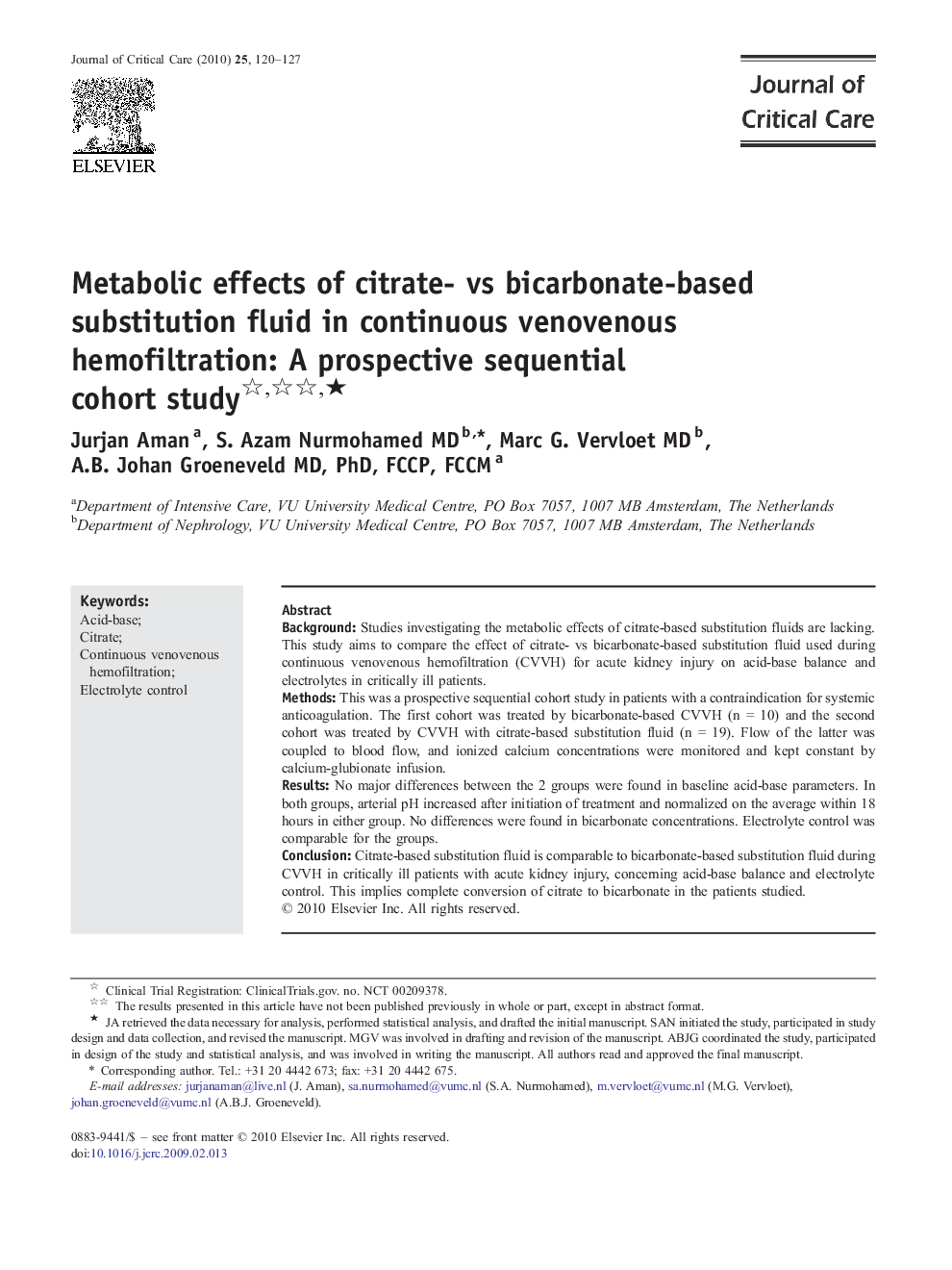| Article ID | Journal | Published Year | Pages | File Type |
|---|---|---|---|---|
| 2765576 | Journal of Critical Care | 2010 | 8 Pages |
BackgroundStudies investigating the metabolic effects of citrate-based substitution fluids are lacking. This study aims to compare the effect of citrate- vs bicarbonate-based substitution fluid used during continuous venovenous hemofiltration (CVVH) for acute kidney injury on acid-base balance and electrolytes in critically ill patients.MethodsThis was a prospective sequential cohort study in patients with a contraindication for systemic anticoagulation. The first cohort was treated by bicarbonate-based CVVH (n = 10) and the second cohort was treated by CVVH with citrate-based substitution fluid (n = 19). Flow of the latter was coupled to blood flow, and ionized calcium concentrations were monitored and kept constant by calcium-glubionate infusion.ResultsNo major differences between the 2 groups were found in baseline acid-base parameters. In both groups, arterial pH increased after initiation of treatment and normalized on the average within 18 hours in either group. No differences were found in bicarbonate concentrations. Electrolyte control was comparable for the groups.ConclusionCitrate-based substitution fluid is comparable to bicarbonate-based substitution fluid during CVVH in critically ill patients with acute kidney injury, concerning acid-base balance and electrolyte control. This implies complete conversion of citrate to bicarbonate in the patients studied.
